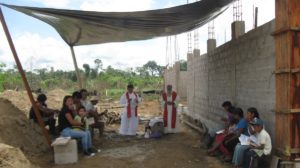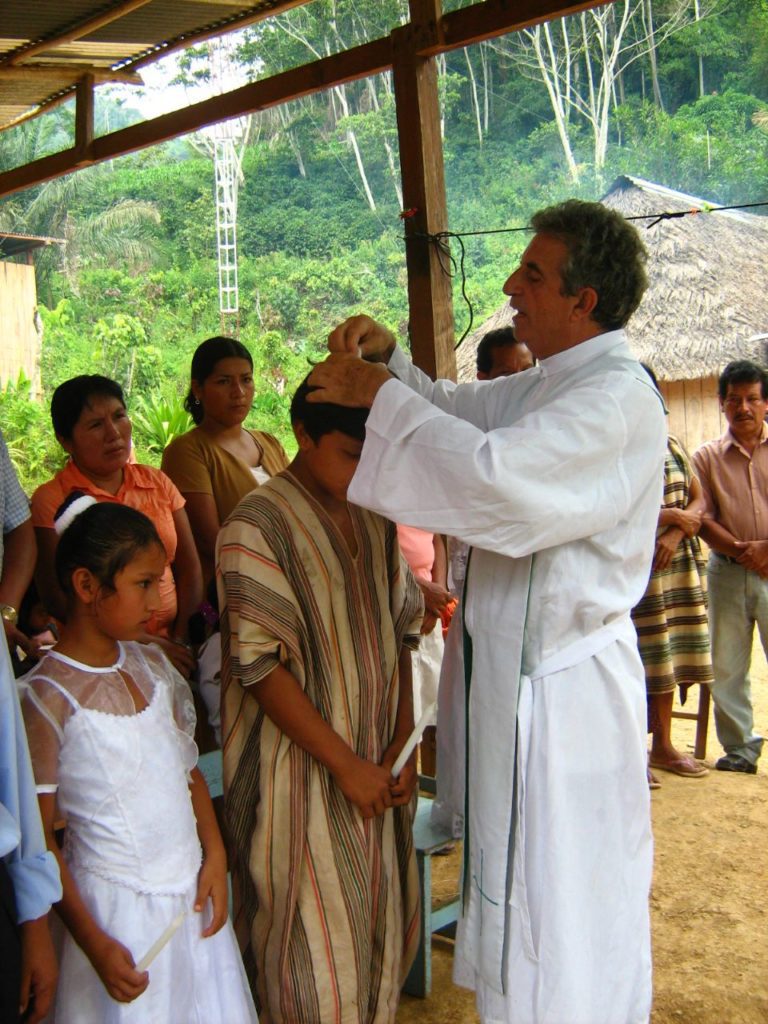Contemplate
The cry of the poor in the Amazon refers to the concerns and protests of the indigenous, rural and poor communities living in the Amazonia region of South America. These communities have been fighting for decades for the protection of their rights, the preservation of their ancestral lands and the conservation of the environment in the Amazonia, which is one of the most biodiverse and ecologically important areas in the world.
Some of the main issues and concerns motivating the "cry of the poor" in the Amazonia include:
- Deforestation: Logging and the expansion of agriculture, cattle ranching and mining often result in the degradation and destruction of vast areas of rainforest, threatening the region's biodiversity and ecological balance.
- Exploitation of natural resources: The extraction of oil, gas and minerals in the Amazonia has led to environmental and social conflicts, as well as the contamination of rivers and land, severely affecting local communities.
- Indigenous and farming communities are often displaced from their lands by companies and development projects, resulting in the loss of their traditional lifestyles and the violation of their human rights.
- Climate change: Deforestation and the degradation of the Amazonia have a significant impact on climate change, as the rainforest acts as an important carbon sink. The loss of tropical rainforest contributes to greenhouse gas emissions.
- Lack of access to basic services: Many communities in the Amazonia lack access to basic services such as health care, education and potable water, which perpetuates poverty and marginalization.
The "cry of the poor" is a call for social, environmental and economic justice in the Amazonia and seeks solidarity and support both nationally and internationally to address these issues and protect the rights of local communities and the environment. Various organizations, both local and global, are working together to raise awareness of these issues and advocate for sustainable and equitable development in the Amazon region.
Illuminate
This Sunday's Gospel (Mark 1:1-8) presents us with the figure of John the Baptist calling for conversion, because the Kingdom of God is at hand, a call he makes by quoting the prophet Isaiah: “I will send My messenger ahead of You, who will prepare Your way. A voice cries out in the wilderness,
"Prepare the way of the Lord, make his paths straight"." (Is 40:3).
Because of our Baptism, we are all prophets, we all have the mission of announcing the nearness of God, which implies at the same time a preparation, a call to conversion, to "straighten the paths". As prophets, we have the mission to lead the people on the path that leads to God, the plain path, the path of fraternity, the path of peace.
This year, in the Dominican month for peace, the Dominican Family feels invited to convert our actions as Christians and to reflect on our participation in the mission of the Order in the Amazonia, in the promotion of justice and peace, in the "care of the common home", in the commitment to a prophetic mission of the Church in the face of the abuses in the use of these lands and the neglect in the attention to the native peoples. This conversion begins by "going out of ourselves" to engage ourselves, in one way or another, in the mission entrusted by the Church to the Order in the Amazonia, to bring the Gospel of peace and mercy to the Amazonian peoples, which began more than a century ago, in a dark context due to the exploitation of rubber, subjecting the jungle to the most abominable slavery, such as the sale and purchase of women and children, and ethnocide. The missionary work of the Order has been, like that of John the Baptist, to call to conversion and to straighten the crooked paths for the encounter with the Lord, the Prince of peace, the God who is always close to those who love him. The Gospel invites us to exercise our prophetic mission to prepare the right path in the Amazonia for the encounter with the Messiah: the path of respect for life and culture, the path of listening, the path of closeness, etc., which commits us to know the culture of these peoples, and thus enculturate the Gospel without arbitrary impositions. It is urgent to defend the human rights of our Amazonian brothers and sisters, as the missionaries have done since the first moments in these lands, gathering the inhabitants in communities and population centers, with schools, medical centers and evangelization centers related to the defense of their rights as children of God. To this date, violations of the human rights of the people of the Amazonia have not stopped.
The inhabitants of the Amazonia continue to suffer the abuses of those who seek to enrich themselves with the resources present in the region, as the encyclical Laudato Sí points out: "the indigenous communities (...) are under pressure to abandon their lands in order to leave them free for extractive and agricultural projects that do not pay attention to the degradation of nature and culture" (LS 146). As a result of these pressures, we have seen indigenous leaders assassinated in order to silence them as they struggle to defend their rights. Therefore, we know that "the voice of your brother's blood cries out to me from the earth" (Gen. 4:10).
Some of the violated rights are:
~Human right to prior consultation and self-determination.
~Human Right to the demarcation of indigenous territories.
~Human right of indigenous peoples in voluntary isolation to self-determination (no contact).
~Human Right to Rural Identity and Food Sovereignty and Autonomy.
~Human Right to Indigenous Identity.
~Human Right to demonstration and participation, to the non-criminalization of the defense of Human Rights.
~Human Right to their Habitat.
~Human Right to Water
These can be summarized as follows: Rights to Land, Life and Dignity.
As a Church and Dominican family, the cry of the people and the words of Pope Francis must resonate in us:
 “I dream of an Amazonia that fights for the rights of the poorest, of the original peoples, of the excluded, where their voice is heard, and their dignity is promoted. I dream of an Amazon that preserves the cultural richness that makes it stand out, where human beauty shines in so many different ways. I dream of an Amazonia that guards the overwhelming natural beauty that adorns it, the overflowing life that fills its rivers and jungles. I dream of Christian communities capable of giving themselves and becoming incarnated in the Amazonia, to the point of giving the Church new faces with Amazonian features". (QA 7).
“I dream of an Amazonia that fights for the rights of the poorest, of the original peoples, of the excluded, where their voice is heard, and their dignity is promoted. I dream of an Amazon that preserves the cultural richness that makes it stand out, where human beauty shines in so many different ways. I dream of an Amazonia that guards the overwhelming natural beauty that adorns it, the overflowing life that fills its rivers and jungles. I dream of Christian communities capable of giving themselves and becoming incarnated in the Amazonia, to the point of giving the Church new faces with Amazonian features". (QA 7).
And starting from the assimilation of these words, let us go out like Friar Antonio de Montesinos, Friar Bartolomé de las Casas, and many other friars to denounce the abuses suffered by the indigenous populations in the Amazonia. Or like: Friar Ramón Zubieta y Les, OP., Blessed Ascensión Nicol y Goñi, OP., Friar José Álvarez Fernández, OP., “The Apaktone” and many other brothers and sisters who have spent (and continue to spend) their lives in and for the Amazonia, to announce with our lives the Gospel in that place and let us make the indigenous people feel like our brothers and sisters, "How can we not fight together? - asks Francis, "How can we not pray together and work side by side to defend the poor of the Amazon? As Dominican Family, we feel committed to the Amazonia.


